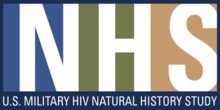A major success of the Military Health System (MHS) is the early diagnosis and rapid viral suppression of HIV among active-duty service members (ADSM). As Department of War (DOW) policy for ADSM with HIV evolves, there remain questions related to medical readiness, testing, management, and non-AIDS complications. The high rates of sexually-transmitted infections (STIs) among ADSM are also a concern and require identification of effective countermeasures.
The goal of the HIV/STI Research Area is to eliminate the occurrence and prevent adverse effects of STIs among ADSMs and MHS beneficiaries through high-quality research focused on characterizing priority STIs, supporting the development of STI biomedical countermeasures, assessing care quality, practice patterns, utilization, and evaluating STI prevention and treatment strategies to inform military policy.
Identifying effective STI countermeasures remains a priority of the research area. During the past year, follow-up was completed for the MAGI Trial, which is a Phase II randomized, placebo-controlled, observer-blinded clinical trial evaluating the effectiveness of the group B Meningococcal (Bexsero®) vaccine as a potential prevention strategy against Neisseria gonorrhoeae (GC) in high-risk populations. Sponsored by the National Institute of Allergy and Infectious Diseases (NIAID) Division of Microbiology and Infectious Diseases and led in the DOW by COL Eric Garges, the MAGI Trial is a collaboration that also includes the University of Alabama at Birmingham and GlaxoSmithKline plc. Data analysis is targeted for 2026 and the findings are expected to help inform MHS clinical practice regarding group B meningococcal vaccination. Collaborative efforts are also in effect with multiple USU departments to support the pre-clinical evaluation of a combined GC/Chlamydia trachomatis (CT) vaccine in conjunction with potential academic and industry partners for a CT vaccine trial.
During the past year, enrollment and data collection were initiated for the new shingles vaccine study, Evaluation of the Reactogenicity of the Recombinant Zoster Vaccine (RZV) in People living with HIV (S2R). Funded by the Defense Health Agency (DHA) Immunization Healthcare Division, S2R will examine RZV reactogenicity among people with HIV ≥18 years old with a focus on those <50 years of age where data are sparse and where the findings will inform potential vaccine safety concerns and MHS clinical practice.
Supported by NIAID and led by Dr. Brian Agan, the U.S. Military HIV Natural History Study (NHS) is a valuable resource with clinical data and blood specimens collected from >6,500 ADSMs and MHS beneficiaries with HIV. During 2025, predictors of cardiovascular disease outcomes were evaluated in collaboration with the University of California San Francisco, University of California Los Angeles, and University of California San Diego. Comprehensive characterization of potential broadly neutralizing antibodies is also underway in collaboration with the NIAID Vaccine Research Center and the U.S. Military HIV Research Program (MHRP), with the analysis extended to include peripheral blood mononuclear cell studies. Furthermore, to support the S2R study and in collaboration with the Naval Health Research Center, immune responses and durability of the RZV vaccine among NHS participants were analyzed and will be reported at the upcoming Conference on Retroviral Infections.
Led by Dr. Agan and Dr. Senay Topal, the quality and costs of DOW and Department of Veterans Affairs (VA) healthcare is being assessed in HIV patients in collaboration with the VA Veterans Aging Cohort Study. Analyses also continued through the HIV Virtual Cohort Study, including assessment of musculoskeletal injuries, fractures, and hospitalizations between people with and without HIV to further the understanding of robustness and frailty that might accompany HIV comorbidities. Hematologic malignancy differences between people with and without HIV is also being evaluated in collaboration with the Murtha Cancer Center.
HIV-associated neurocognitive impairment continues to be a substantial concern for people living with HIV. The functional consequences of HIV-associated neurocognitive disorders (HAND) is the focus of the ALLHANDS study. During the past year, prospective data collection concluded with some participants having 10 years of follow-up. Analyses of the accumulated data are ongoing.
The GC Repository Study received approval from the USU Institutional Review Board in 2025 and, under the leadership of Drs. Ann Jerse and Luz (Adriana) Le Van, will provide laboratory-based surveillance of GC isolates collected from overseas sites to evaluate the incidence of antimicrobial resistance (AMR) among military-related populations of interest. The impact of priority STIs on operational readiness and patient-reported outcomes will be assessed. Also led by Dr. Jerse and supported by the IDCRP, the USU GC Reference Laboratory continues to provide technical STI diagnostics requested by the DOW Global Emerging Infections Surveillance (GEIS) program.
For 2026, a new collaborative study with the University of Idaho and the MHRP will assess the long-term effect of HIV on medical readiness, duty-limiting medical conditions, and service retention. New initiatives related to the STI continuum of care, a prospective study of Lenacapavir HIV PrEP, and the next GC or CT clinical trial are being discussed. The HIV/STI Research Area will also merge with the Acute Respiratory Infections Research Area in the coming year.
Military Impact
The HIV/STI Research Area remains responsive to clinical priorities of the DHA, including GEIS, and addresses many DOW requirements. As military HIV policies continue to be revised, data from the NHS were used to address DHA requests regarding ADSM HIV care, treatment, and outcomes. Findings from the MAGI Bexsero® vaccine clinical trial and the evaluation of the reactogenicity of RZV vaccine may also be used to inform military clinical practice. Analyses of ALLHANDS data will improve understanding regarding the impact and predictors of HAND among ADSMs with HIV, which may further inform military policy. Reports on GC surveillance and AMR findings are provided to GEIS to inform operational planning, and COL Garges serves on the GEIS AMR Working Group.

